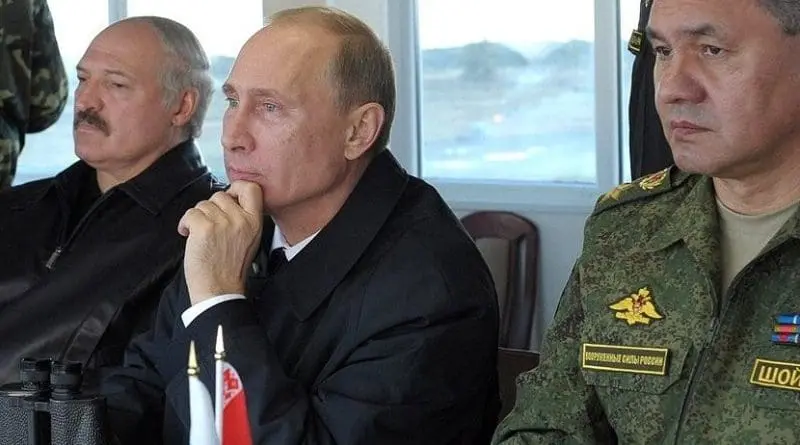Will Russia Provide Military Aid To Belarus? – OpEd
Last week, I wrote a piece where I suggested that Putin was unlikely to abandon Alexander Lukashenko, despite the fact the Belarussian president initially blamed the Kremlin for the recent protests. In the piece I argued that in the absence of any other viable candidate, from the Kremlins perspective, Russia is likely to maintain its support for Lukashenko.
Since writing that piece, the protests have continued to grow, and Lukashenko’s grip on power seems less firm. This raises another question, to what lengths is Putin willing to go to, to ensure Lukashenko remains in power? Or more precisely, will Putin provide Military aid to Belarus?
For almost two weeks, demonstrators all across Belarus have taken to the streets to protest against the results of the presidential election, which saw Lukashenko win his sixth term. Lukashenko has dealt with numerous protests over his 26-year long reign. However, these are by far the largest, and now Lukashenko is starting to panic.
Since the onset of the protests Lukashenko has changed his story twice. When unrest first began, Lukashenko attempted to discredit protesters by claiming they were agents of Russia. Perhaps in anticipation of opposition, Belarussian security services arrested 33 Russian citizens, who they claimed worked for a Kremlin backed private security firm. Lukashenko also claimed there were still over 200 Russian agents at large, whom he vowed to hunt down.
Scapegoating Russia failed to plicate the people, with more and more coming onto the streets in protest. In need of external help, Lukashenko began to claim that NATO had initiated a military build up along its western border and appealed to Putin for help.
Russian Military Aid to Belarus:
In a phone call made earlier this week, Putin informed Lukashenko that Russia was prepared to offer military aid to Belarus. This caused an international outcry, with the Lithuanian foreign affairs minister Linas Linkevicius claiming that Russian Military help in Belarus would mean an ‘invasion’. Putin’s statement also spawned a series of articles which speculated that Putin might even use the opportunity to invade Lithuania.
However, what many articles have neglected to point out is that Putin offered help under the terms of the Collective Security Treaty Organisation (CSTO). The CSTO is a common security alliance between six former Soviet States, including Russia and Belarus. The treaty recognises that an act of external aggression against one is considered an act of aggression against all.
Putin’s offer of military assistance was made in response to the alleged NATO military build-up, not to quell protests. Furthermore, Russia’s military manoeuvres at the Belarussian border are likely an intimidation tactic, aimed at discouraging the West from intervening.
Right now, Putin is in a difficult position, caught between supporting a long-time ally or abandoning him. For the time being, Putin will likely support Lukashenko. However, Putin’s support will have limits. Given the war in Eastern Ukraine and Syria, the Kremlin is unlikely to send troops to Belarus. Should it reach the stage where Lukashenko needs military aid to quell the ever growing internal dissent, expect Moscow to cut ties with the dictator and attempt to negotiate a favourable regime change.

